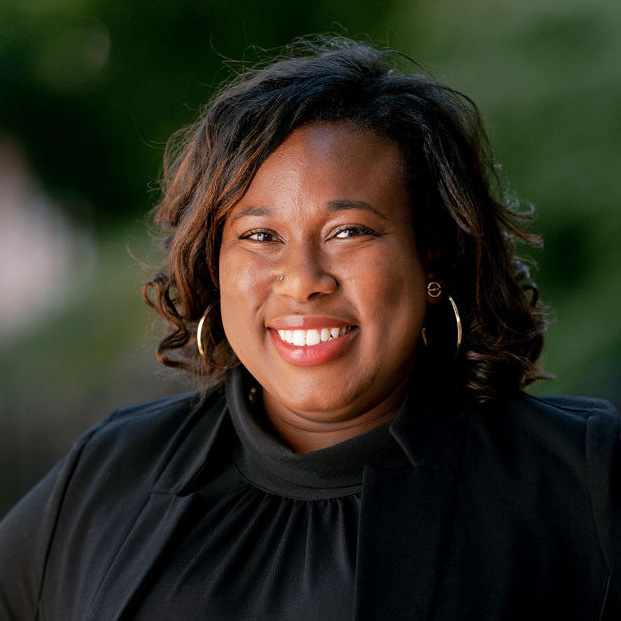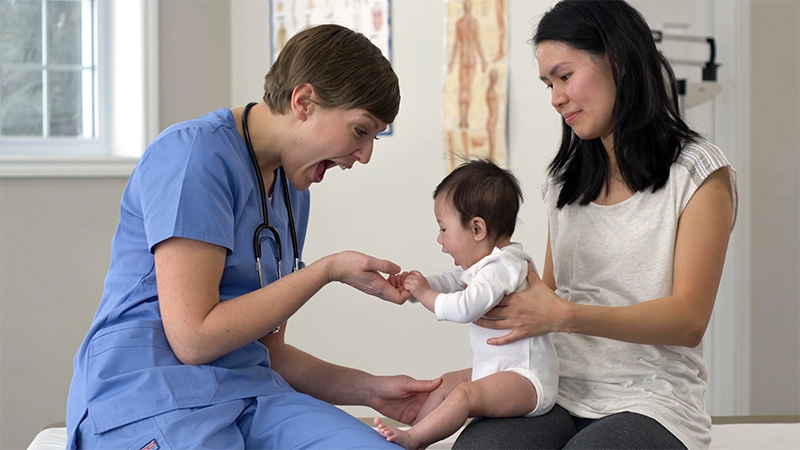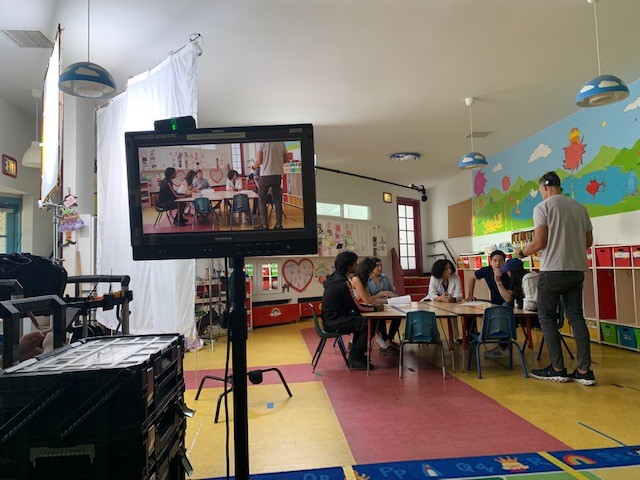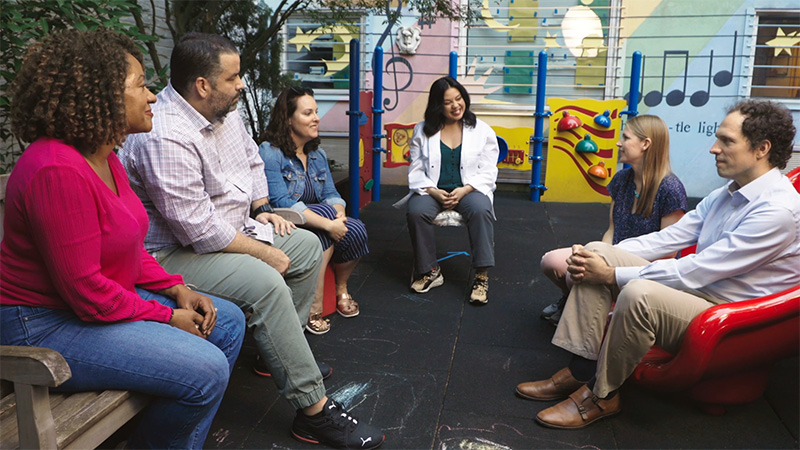The request might not show up on any baby-shower wish list, but the gift practically every new parent wants most is guidance—reliable answers to their countless questions—and connections with others who understand what they’re dealing with. The Sparks Parent Video Series, a curriculum created by the Mount Sinai Parenting Center at New York’s renowned Mount Sinai Kravis Children’s Hospital, in collaboration with Zero to Three and the Brazelton Touchpoints Center provides precisely such assistance. The series provides 14 videos that dovetail with families’ pediatric well-child visits from birth to 5. Each of the 7-minute videos offer parents bite-sized chunks of just-in-time, science-based information when they need it, and feature animation, lively graphics and real people discussing their own experience with such questions as, “How do I know when my baby is full?” “Will I spoil my baby if I pick them up when they cry?” and “Newborns go through how many diapers in a day?”

“It’s hard for parents to know who to trust these days,” says Dr. Nia Heard-Garris, attending physician at the Lurie Children’s Hospital of Chicago. “You google cold symptoms, and it’ll say that you have cancer. It can be hard to distinguish what information sources are legit and whether the sources you find know what they’re talking about.
“First-time parents are often so intimidated,” says Heard-Garris, who was one of the video series’ creators and part of a team of pediatricians, public health specialists, consultants and child development specialists who spent the much of the pandemic lockdown meticulously crafting the content for these seven minutes of reassurance. “Having a baby is a lot to go through. I can’t tell you the number of parents I’ve had in my office crying because they knew they couldn’t do it right.”
In any medical practice, time is of the essence, and in pediatric practice especially there’s a lot to pack in as the clock is ticking. Dr. Carrie Quinn, executive director of the Mount Sinai Parenting Center, says the challenges are twofold: Providers don’t have enough time in primary care to deliver all the information parents need or want, and providers are trained with a focus on illness and treatment. Questions about parenting and how parenting behaviors can shape a child’s success in relationships and school can affect their mental health, and even physical health and well-being are not always a priority.

“The science is exploding in the area of early childhood development and how the first few years of life are so important in building a strong foundation for the future,” Quinn says. “As health care professionals, we have an incredible opportunity as we are in front of parents from the moment they become a parent. And we have countless touchpoints with families in the months and years that follow. These are all opportunities for us to support parents, help them be the parent they want to be, and to give their child the best start in life.”
The Sparks video series accomplishes the feat of making certain the family’s medical needs and milestones are met during well-baby visits while also providing the all-important guidance parents seek.
Designed with Parents in Mind
With input the team solicited from experts across the country, the videos blend information on social, emotional and cognitive development with such topics as sleep, safety, nutrition and medical concerns. Parent focus groups guided the creators to design messages in the language and framing that would resonate best. Each video is available in Spanish and English, and the series features an important diversity of families and speakers.

“In selecting the parents to appear in the videos, [we sought] a wide variety,” says Kathy Kinsner, senior manager of parent resources at Zero to Three. “We have same-sex couples, older couples, people who are first-time parents, and a wide range of ethnicities. It’s not a scholarly lecture, but rather, normal parents asking normal things, showing that there’s not just one approach, but many paths to the same parenting goal.”
In accompanying the child’s progress at regular intervals, the videos help shape the mothers’ and fathers’ evolution into parenthood. Few people in our society have much experience with small children when they start their journey with a newborn, Kinsner says. Moms and dads transform in remarkable ways into this being called “a parent,” and the videos foster that process.
“Kids evolve day to day,” she says, “and just when you think you’ve mastered infancy, suddenly you have a toddler on your hands. And that evolution goes on for the next 18 years. So having the videos there, step by step, keeps delivering the message, ‘You can do this. You can do this.’”
The series also provides a welcome alternative to the way pediatric practices once approached advice on parenting. Whatever vestiges of “my way or the highway” might linger from a more hierarchical, paternalistic past are dispelled with Mount Sinai’s approach generally; this series embraces equity and trusts parents to know their own culture and mores.
“Too often in history, families have been told that there is one, defined ‘right way’ of being a parent. We say now that great parenting can look very different from family to family and from culture to culture,” says Rebecca Parlakian, senior director of programs at Zero to Three. “For instance, in the section on dual-language learning, families talk about how they approach introducing two languages to their children—in very different ways. We’ve worked to show that there are lots of healthy, loving approaches—healthy and loving being the secret sauce—to achieving the same goal.”
Just as recent science has demonstrated the powerful impact negative early experiences can have on children’s physical and emotional health, it has also shown that positive parenting can buffer these adverse events. A guiding principle at Mount Sinai Parenting Center is to maximize any opportunity to promote strong parent-child relationships during routine care, to fold coaching and information naturally into every occasion parents have to interact in a pediatric environment. (ELN recently wrote about Mount Sinai’s Parenting Center’s groundbreaking environmental transformation partnership with the Bezos Family Foundation, Vroom and Mind in the Making.) Its first major initiative, Keystones of Development, was an online, self-directed curriculum for residents designed to model ways do just that. From an initial pilot with eight pediatric residencies in 2018, the curriculum has flourished to the degree that it is now used by 82 percent of pediatric residency training programs and 18 percent of family medical residency training programs in the U.S.
Building Residents’ Knowledge Base
The video series will also extend the parenting message to pediatric residents, many of whom have never been parents before.
“We see this as a really important tool for educating residents,” Parlakian says. “We intentionally elevated parents’ voices in these videos equivalently to those of the pediatricians’ voices because surveys of parents show that while they trust and appreciate information from professionals, they also put a lot of stock and trust in other parents.

“These parent voices and the tactical strategies we’re offering parents in these videos can spark learning in the residents as well,” she says. “Most pediatricians recognize that it’s essential to build relationships with parents, but sometimes it’s hard to know what to say and how to frame the issues in ways that will resonate with parents.”
User guides offer a set of discussion questions to help residents deepen their understanding and ability to apply the concepts to their work with families, with prompts including, “What struck you in the video? Are you seeing any of these things in your child?” as well as encouraging the residents to talk with the parent about their struggles and achievements.
The video series is flexible to any health care setting and will be offered free to anyone who is interested. Video is a familiar format that doesn’t require a particular literacy level, which makes the information widely accessible. Rather than hand a parent a three-page article on behavioral issues, for example, parents can watch videos of other parents discussing how they approached these challenges.
The user guides for providers offer various scenarios for how clinics can make use of the series. Pediatric practices can make it easy for parents to watch the videos—available via web, text or app—prior to their well-child visits, in the waiting room or while waiting in the exam room before a visit.
Having acquainted themselves with the videos can prepare the providers for any unanswered questions the parents have—or just normalize for them the fact that new parents have a lot of questions, and that any question is a good one.

One of the video series’ key purposes, says Dr. Lisa Satlin, chair of the pediatrics department at Mount Sinai’s Icahn School of Medicine, is to create partnership among the providers and parents, and to provide a real-life education for all parties.
“The ready access of information from professionals and other parents that the series provides promises to build the strong parent-child relationships critical for a child’s physical, mental and emotional development,” she says.
The series saw a soft launch in the fall and will be widely released and promoted this spring. Dr. Heard-Garris predicts it will be a huge hit for providers, residents and especially for parents.
“Never in my years of working at any pediatric institution has there been such extensive guidance for parents on how to navigate these first five years of their child’s life.”

K.C. Compton
K.C. Compton worked as a reporter, editor and columnist for newspapers throughout the Rocky Mountain region for 20 years before moving to the Kansas City area as an editor for Mother Earth News. She has been in Seattle since 2016, enjoying life as a freelance and contract writer and editor.



